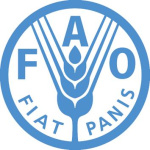- Industrie: Agriculture
- Number of terms: 87409
- Number of blossaries: 0
- Company Profile:
Established in October 1945 with the objective of eliminating hunger and improving nutrition and standards of living by increasing agricultural productivity, FAO coordinates the efforts of governments and technical agencies in programs for developing agriculture, forestry, fisheries, and land and ...
The unique structure found at the end of eukaryotic chromosomes containing specialized sequences of DNA that assures the completion of a cycle of DNA replication.
Industry:Biotechnology
The use and organization of information of biological interest. In particular, it is concerned with organizing bio-molecular databases, in getting useful information out of such databases, in utilizing powerful computers for analysing such information, and in integrating information from disparate biological sources.
Industry:Biotechnology
The use of an antibody or a fusion protein containing the antigen binding site of an antibody to cure a disease or enhance the well-being of a patient.
Industry:Biotechnology
The use of artificial tissues, organs and organ components to replace parts of the body that are damaged, lost or malfunctioning.
Industry:Biotechnology
The use of DNA markers to increase the speed and efficiency of introgression (q.v.) of a new gene or genes into a population. The markers will be closely linked to the gene(s) in question.
Industry:Biotechnology
The use of DNA polymorphisms to detect the presence of a specific allele (often associated with a disease or syndrome) or DNA sequence.
Industry:Biotechnology
The use of laser beams to detect differences in fluorescence between different types of cells in a mixture, and the subsequent deflection of cells into separate bins corresponding to each type of cell in the mixture. One of the popular uses of this technology is in sperm sexing (q.v.).
Industry:Biotechnology
The use of polymerase chain reaction (PCR) at a sufficiently high stringency that only a primer with exactly the same sequence as the target DNA will be amplified. A powerful means of genotyping for single-locus disorders that have been characterized at the molecular level.
Industry:Biotechnology
